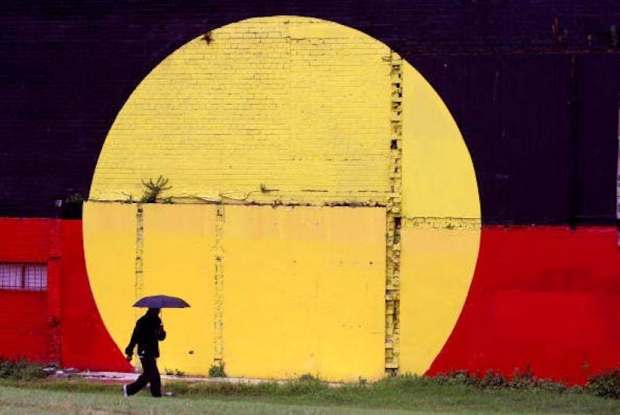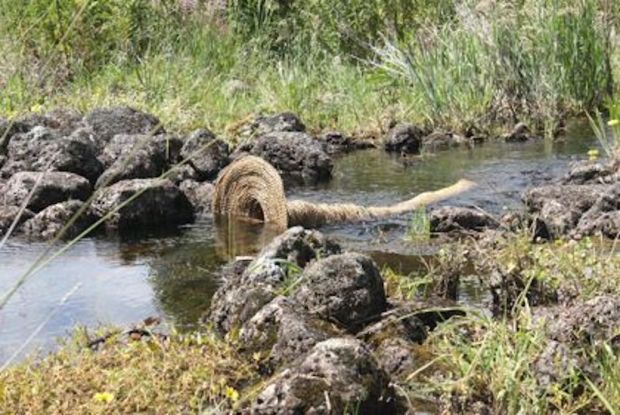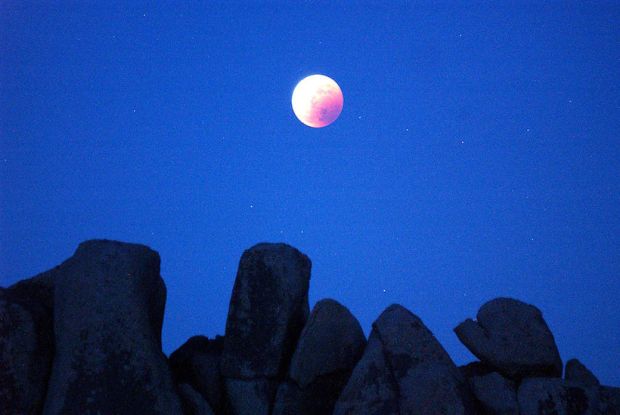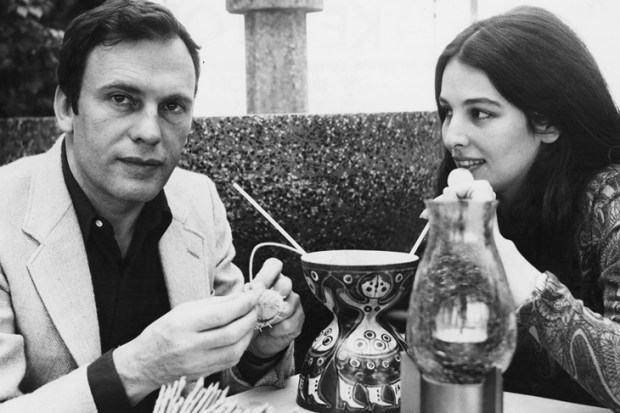The third in a series of articles examining Dark Emu-style claims.
These days we hear a lot about what a sophisticated society the pre-colonial Aboriginal people enjoyed and how, in many fields, they are the world’s first practitioners. This meme is part of a wider narrative that Bruce Pascoe borrows from in his book Dark Emu.
I wonder if they appreciate the irony that these claims of Aboriginal exceptionalism are quite demeaning to Aboriginal people in that they are so deeply patronising. Over the last week or so, I have been presenting a series of short articles, extracted from my book Bitter Harvest, which examine some of these claims.
So far we have looked at Aboriginal astronomy and mathematics. Today we take a look at Aboriginal science.
Joe Sambono is a zoologist and indigenous science educator working as part of the Australian Curriculum, Assessment and Reporting Authority. He tells us:
I have a love of the scientific method and all the amazing knowledge that exists within Western science, but I also have a huge amount of awe and fascination with all of the amazing scientific knowledge, technologies and processes that Indigenous peoples have developed over thousands of years.
I was a part of the ACARA curriculum team that worked on creating the 95 elaborations in response to teachers and community asking for support to better incorporate Aboriginal and Torres Strait Islander histories and cultures into the science curriculum.
They have been mostly welcomed and celebrated by educators around the country – even the Prime Minister has come out in support of this work – but unfortunately there have also been some who do not understand or appreciate the amazing scientific achievements of Indigenous peoples and the value it can add to the Australian Curriculum.
He takes the view that ‘science’ was an essential part of Aboriginal survival, citing such achievements as the boomerang, the spear, detoxification of cycads and nardoo and the development of fire. That is true. But it is also true of all early human societies. Almost certainly, all these achievements originally resulted from some chance event (albeit they were subsequently enhanced by some form of experimentation) rather than application of the scientific method. Incidentally, that singular – and indeed amazing – tool, the boomerang is not uniquely Australian, examples having been discovered all over the world.
To be fair, Sambono is not claiming any amazing ‘firsts’ for Aboriginal science. His interest is to high-light Aboriginal achievement by contextualising science teaching in terms of Aboriginal culture. As such his imperative is not science per se but promotion of indigenous culture. I take issue with his assertion that ‘the amazing scientific achievements of Indigenous peoples’ can add value to the science curriculum, other than, perhaps, in making it more interesting to Aboriginal students.
However, he does develop an interesting theory:
This is not an issue of Western science vs Indigenous science.
It is simply a matter of understanding that all groups of humans around the world and throughout history have hypothesised, experimented, made empirical observations, gathered evidence, recognised patterns, verified through repetition, made inferences and predictions, and developed branches of knowledge that helped them to make sense of the world around them and their place within it.
One only has to look at the origins of the word ‘Science’. It comes from the Latin word ‘Scientia’, which simply means ‘to know’.
To suggest that there are any groups of human beings who didn’t have science is, ironically, quite unscientific.
Australia is home to many of the earliest examples of scientific thinking in the world, and any curriculum that aspires to be relevant to Australian students should obviously include an understanding of Australian science throughout history.
This is not just relevant here; learning about ‘world firsts’ is important in any field of study. It is also crucially important to recognise and not denigrate Indigenous science as mere ‘superstition and witchcraft’ if we want to engage Indigenous students in the sciences and promote respect as well as scientific rigour amongst non-Indigenous students.
Science at its core is, in my opinion, a human trait practised to some degree by all peoples of the world.
We are natural scientists; we have no other choice … our perception of the world, and our decision making about it work on the basic principles of hypothesis testing and refutation, and that ‘scientific method’ therefore is simply the extension of basic cognitive principles.
That makes sense, doesn’t it? Well, not quite. It depends upon what you mean by ‘science’. Somewhat like ‘racism’, it can mean whatever you want it to mean. Humans are born with an innate set of cognitive and intuitive skills. They have used these skills to adapt their environment to meet their needs. At the very basic level, for example in constructing some form of shelter or devising coverings for the body, deductive reasoning plays little or no part. As we progress further up Maslow’s hierarchy of needs, intuition plays an increasingly minor role. But for much of our needs, we still rely on gut instinct. For many of our decisions, we do not test and refute hypotheses. That primitive people took advantage of natural chemical or physical processes – such as fire – did not make them ‘scientists’ in the sense that we understand today.
Joe Sambono seems to recognise that himself when he says that the ‘scientific method’ is simply the extension of basic cognitive principles. In fact, it is not an extension of cognitive principles but a product of cognitive reasoning. Aboriginal people did not make that leap. They did not develop a ‘scientific method’ which characterises modern science and which involves formulating hypotheses, via induction, based on observations; experimental and measurement-based testing of deductions drawn from the hypotheses; and refinement (or elimination) of the hypotheses based on the experimental findings.
Ren Songoro is a Saibai–Zenadth Kes (Torres Strait Islands) and Papua New Guinean woman, teaching high school Science and Maths on Ngambri/ Ngunnawal country. She tells us:
One of my many favorite lessons to teach my students, is during a chemistry unit for Year 8s and Year 10s. I show them how sophisticated Aboriginal knowledges and understandings were through the colour manipulation of ochre with heat. Our people knew that you can alter the colour of the ochre pigment, if you treated the ochre with heat and the colour is dependent on how long you expose the ochre. An intelligent discovery due to thousands of years of inquiry, experimentation, engineering and perfection.
Did it really take thousands of years of inquiry, experimentation and engineering to develop this ‘sophisticated’ technique? And further:
There is the illusion among Australian society that western science was the beginning point for ‘civilisation’ on this continent and that without it, our people would not have advanced nor would our people have survived through the ages. We hold it as the epitome to explain our natural world and the phenomenons (sic) that exist within it. Western science is seen as more trustworthy because it seems to provide empirical and testable knowledge which is then supported through academic research and study. With this thinking we then denounce all other systems of knowledge as lesser, or ‘inadequate’. I find this with great frustration, even as a Science teacher, I am expected to prioritise scientific concepts and theories as more credible and the accepted way of thinking. While I am preaching to mob who know and understand what Indigenous Knowledges are, I want to stress its importance and the fact that, western science has a long way to catch up to it.
Throughout centuries, Indigenous people have been the first innovators and without any coincidence, we have been responsible for the development of many technologies and discoveries.
‘I find this with great frustration, even as a Science teacher, I am expected to prioritise scientific concepts and theories as more credible and the accepted way of thinking.’ Really? What a shocking indictment of our educational system that science teachers should be forced to eschew tradition in favour of rigorous learning. It sounds as if Ren should actually be teaching home economics or art. She goes on to say that ‘we must not try and validate Indigenous Knowledges using foreign scientific criteria, as it lessens its superiority’.
In what way is traditional knowledge superior to Western science? If this statement is to have any meaning it can only be as an ‘apples to oranges’ comparison. Indigenous knowledge, as she says, is embedded in indigenous culture. What she calls ‘foreign science’ (what we might call Western science even though it is now universal) is independent of culture. Indigenous culture has intrinsic value but not as science. Aborigines might have known how to bake bread or to change the pigment of ochre or to extract adhesive resins from plants but they did not know why these changes occurred.
Let me emphasize that I am not traducing the achievements of Aboriginal people who managed to thrive on an inhospitable continent. But it is patronizing nonsense to classify those achievements as in any way equal to modern science because they are two distinct paradigms.
Got something to add? Join the discussion and comment below.
Get 10 issues for just $10
Subscribe to The Spectator Australia today for the next 10 magazine issues, plus full online access, for just $10.


























Comments
Don't miss out
Join the conversation with other Spectator Australia readers. Subscribe to leave a comment.
SUBSCRIBEAlready a subscriber? Log in